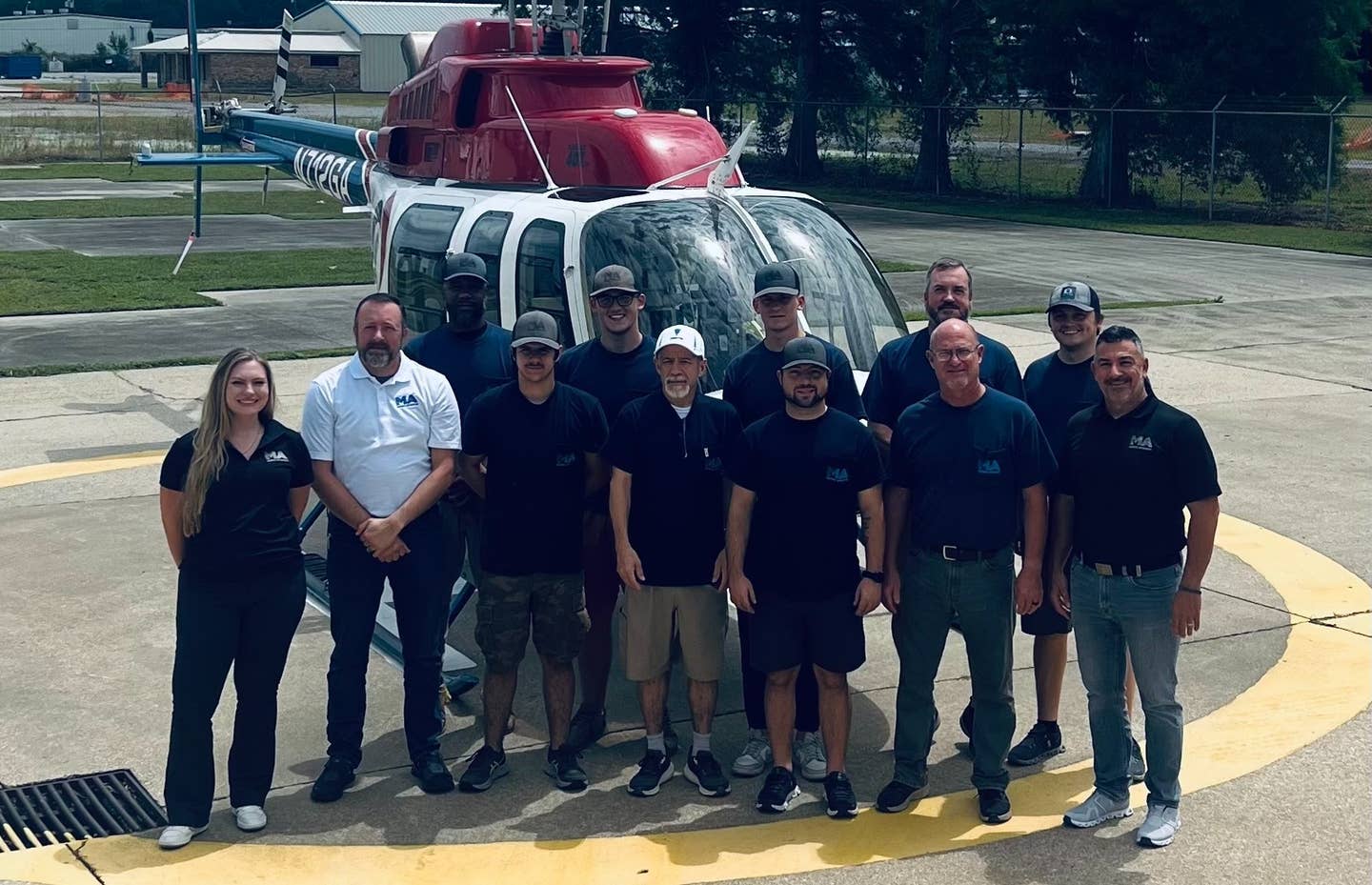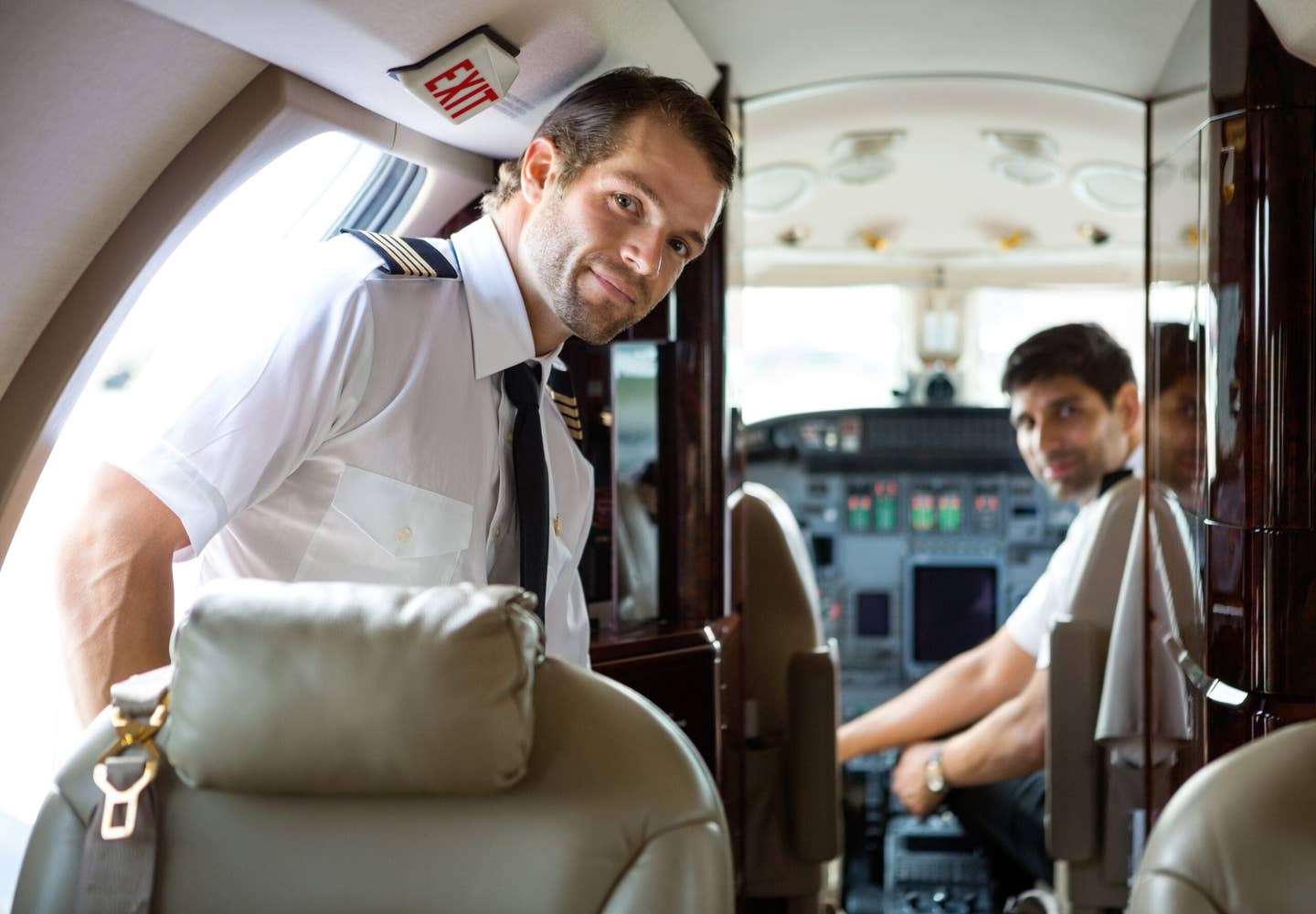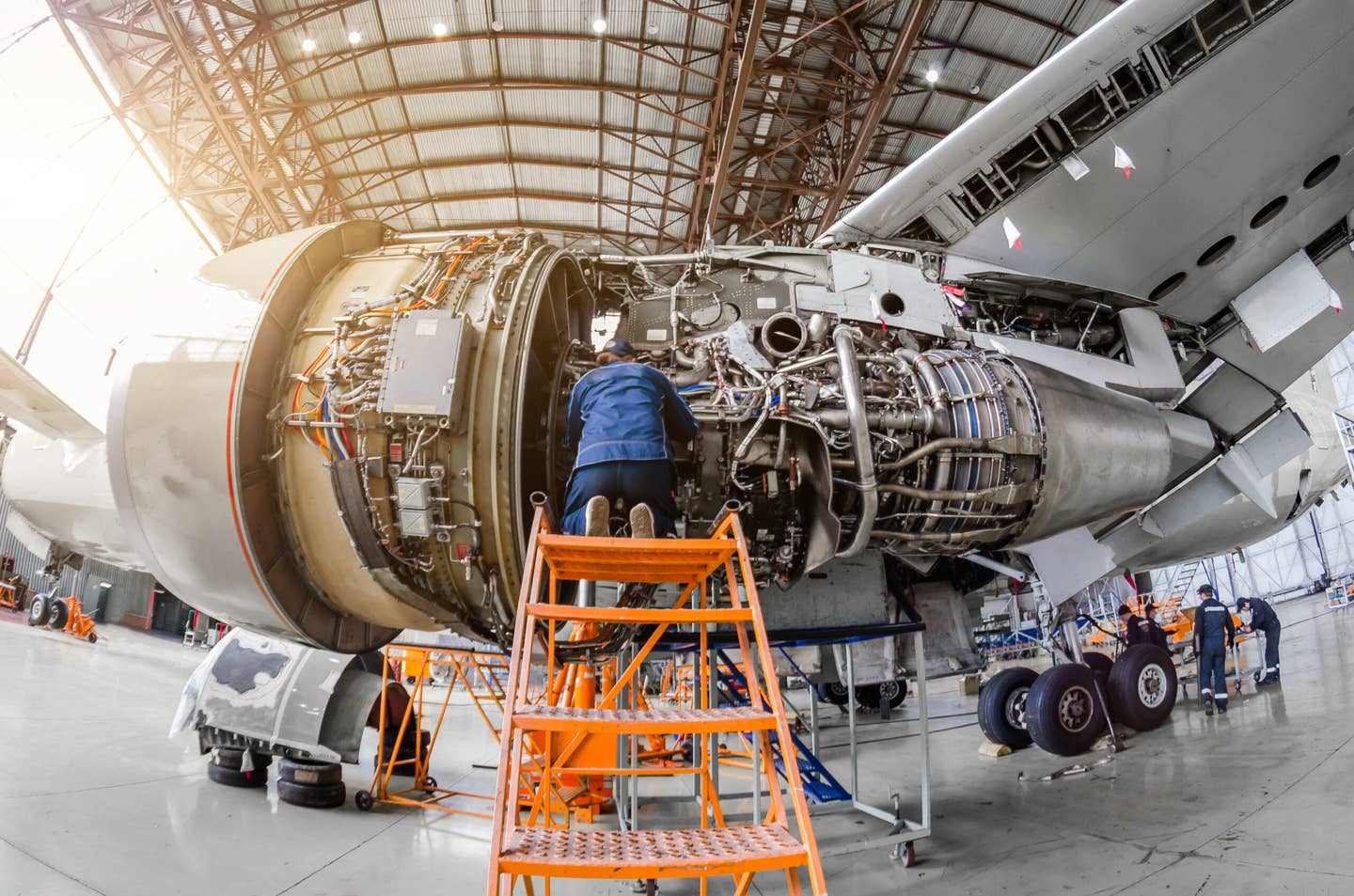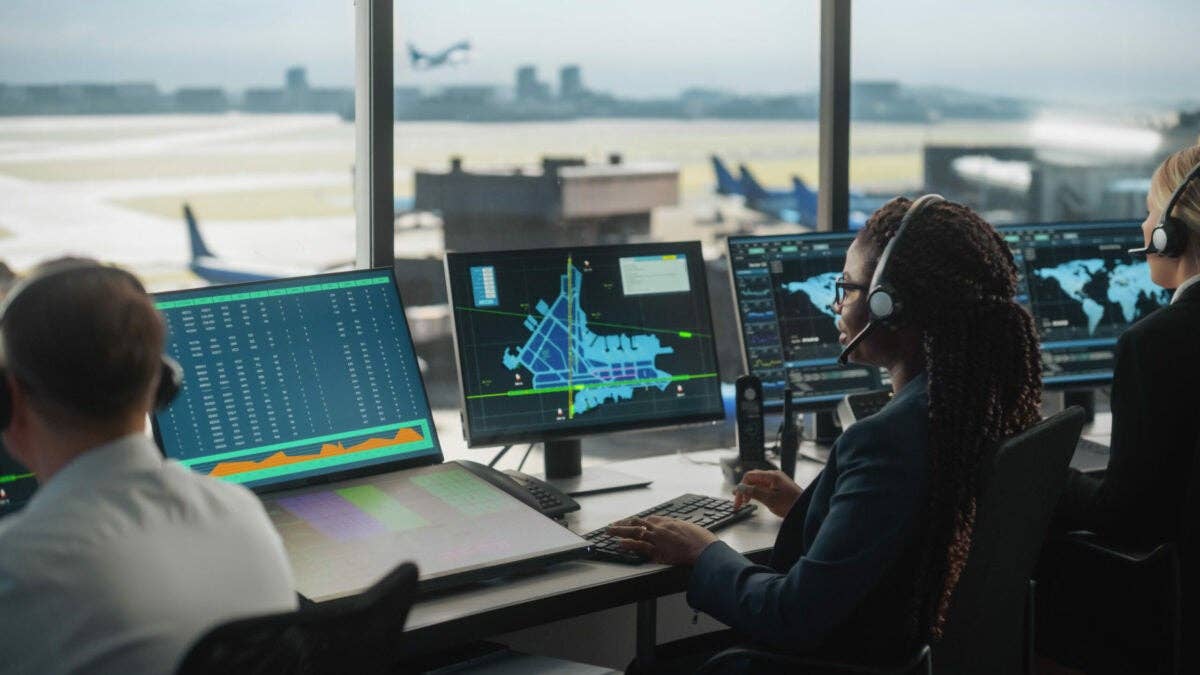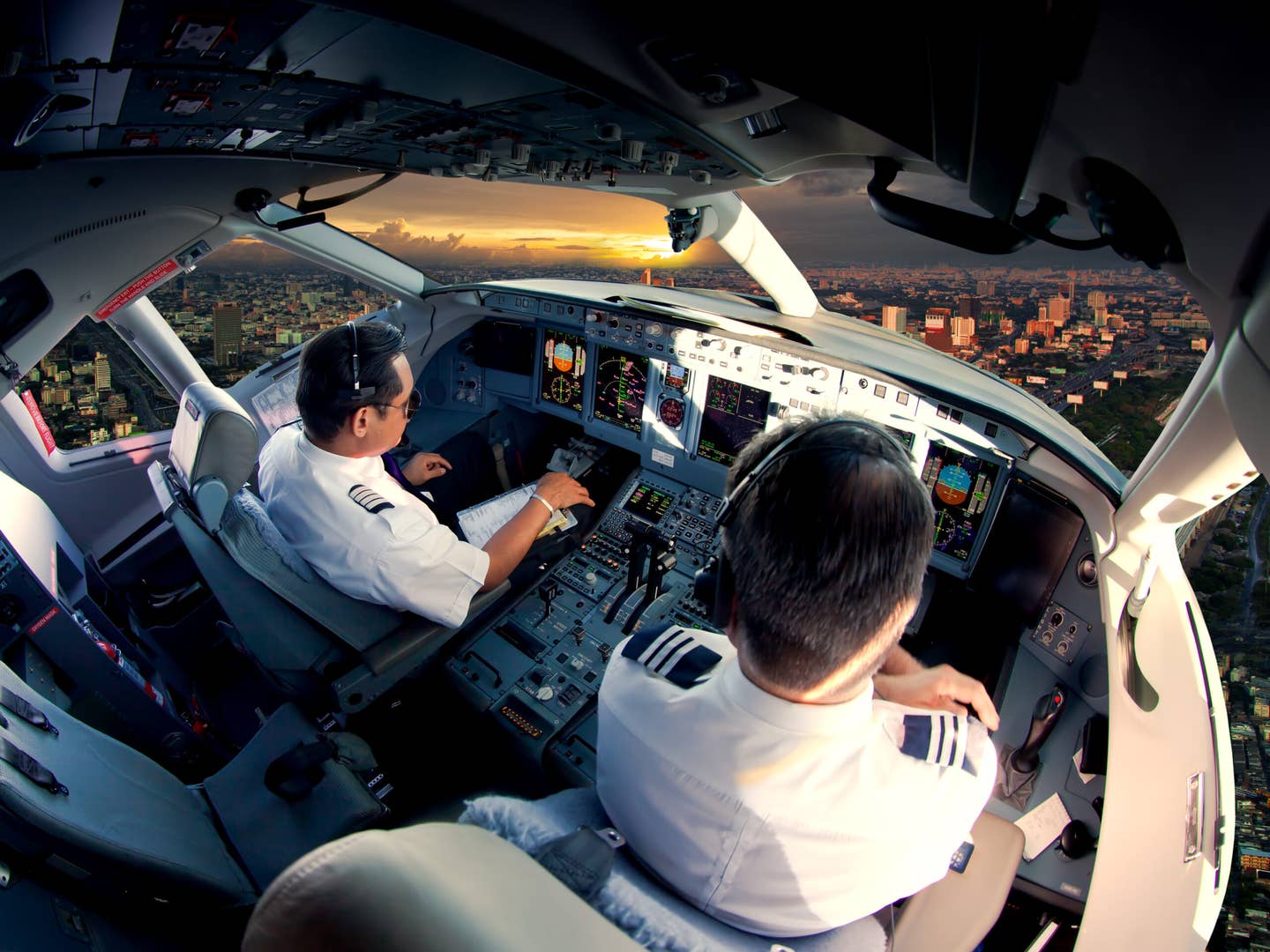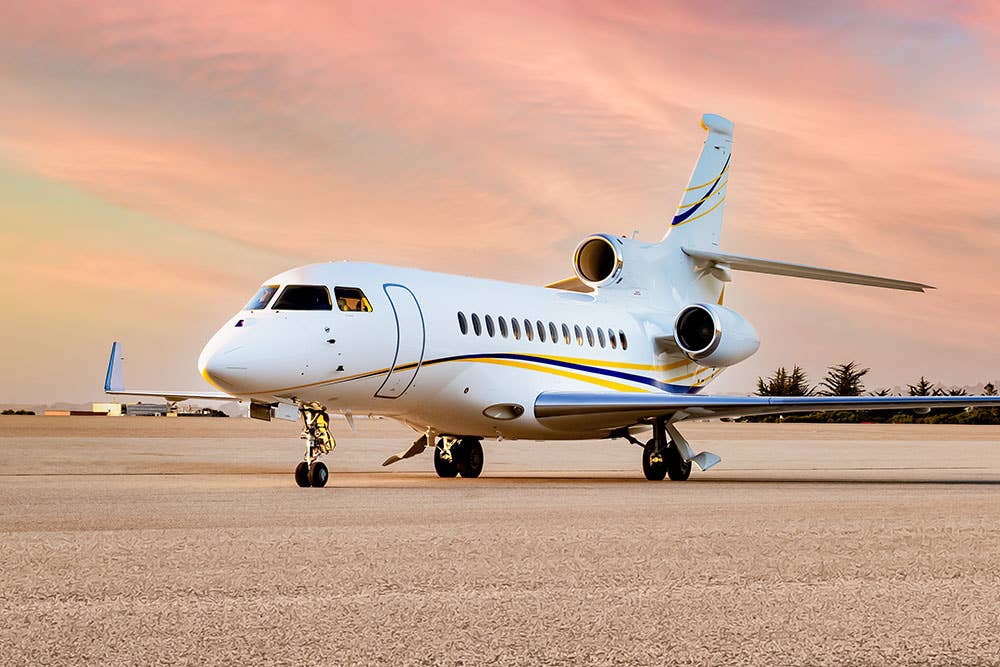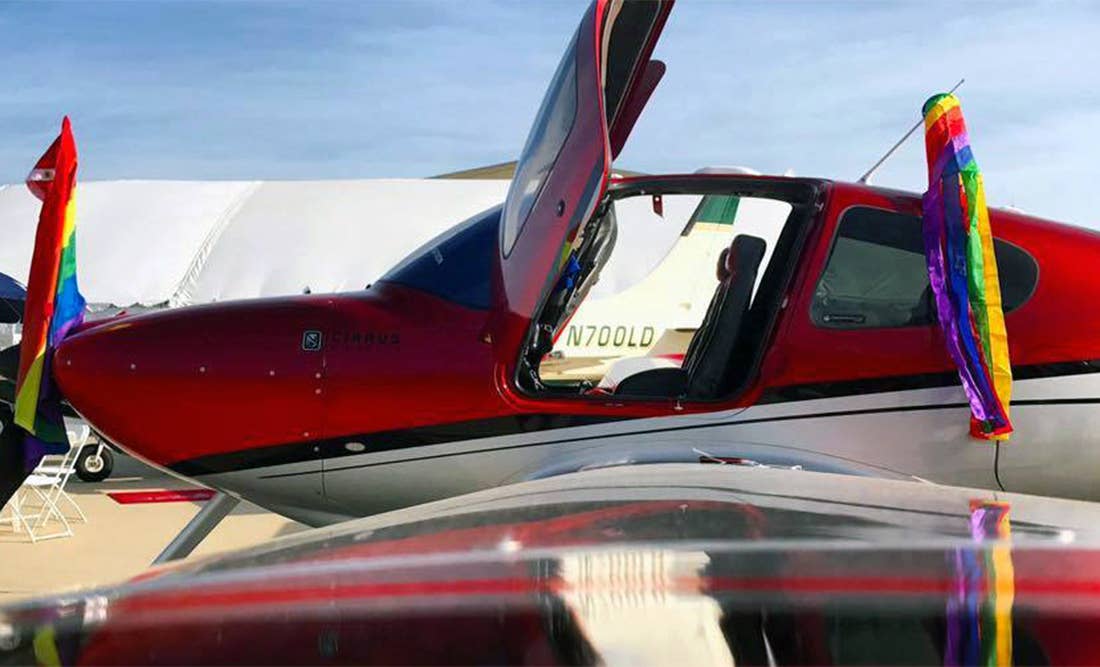
The National Gay Pilots Association, the worldwide LGBTQ+ aviation community, was established in 1990 primarily as a social organization. [Courtesy: NGPA]
Do you remember learning to write? You probably picked up the pencil without thinking about it—and that established your dominant hand. It was just how you were. If you were left-handed, you quickly realized that you had a challenge ahead of you—most of the world is right-handed and in some cultures there is pressure for children to be right-handed—the message here is that being right-handed is “normal,” but being left-handed is not.
Now, imagine you can be fired from your job for being left-handed, denied housing, physically assaulted, and there are people who think you are going to hell for being left-handed because some religions espouse the left hand is the devil's hand. On top of that, the fact that you are left-handed is the only thing people remember about you. You may even be compelled to hide your left-handedness. It's a lonely, marginalizing existence. Now substitute the term LGBTQ+ for left-handed, and you have the plight of many gay persons—we use the term gay inclusively here. This is in part the reason behind the creation of the National Gay Pilots Association.
The NGPA Is Born
The National Gay Pilots Association, the worldwide LGBTQ+ aviation community, was established in 1990 primarily as a social organization. "This was a time of don't ask, don't tell," says Kit Warfield, a retired flight instructor and seaplane pilot living in Seattle. She learned to fly in the early ’90s and quickly became involved in the NGPA. "Members would meet in cafes and bars outside of work, identifying each other because they were wearing articles of clothing with an airplane on it. It was an opportunity to step out and meet people who were like you."
Warfield served as chairman of the NGPA Education Fund, then served as co-chair of the main organization for several years. The two entities merged into a single organization in 2017 and became a 501(c)(3).
As social media and the internet flourished, so did the organization. Membership grew and evolved, says Brian Gambino, who has been a member of the group since 2008 and currently serves as its president. "It's not just open to pilots," he says. "Our membership includes pilots, flight attendants, dispatchers, anyone who has an interest in aviation, because aviation is our common bond."
You also don't have to be LGBTQ+ either to be a member. Allies—people who support the LGBTQ+ community—are also welcome.
June is a busy month for the organization because it is Pride Month, marked by parades and other celebrations held around the world to recognize the impact that lesbian, gay, bisexual, and transgender individuals have had on history. It is celebrated in June to commemorate the 1969 Stonewall Uprising in Manhattan, New York, which was a turning point for the Gay Liberation Movement in the United States.
When FLYING caught up with Gambino, he had just returned from the inaugural Pride celebration in Cedar Rapids, Iowa.
"We were invited by CR Pride. It was their first Pride event, and we were honored to be part of it," Gambino says. "The parade kicked off Pride Month." Members of the NGPA marched carrying a large inflatable airplane, and in addition to the parade, the NGPA had an information booth at the local farmer's market and held a fly-in at the Cedar Rapids Municipal Airport (KCID).
"In the flight environment, there are those who will question someone's aviation capability based on what they do not understand or do not accept."
Brian Gambino, president, National Gay Pilots Association
There were numerous aircraft on the ramp ranging from private airplanes to corporate jets. Visitors were encouraged to get up close to the aircraft and ask questions.
"We had an education zone for the kids, seminars for wannabe pilots; we had people who talked about charter operations, how to get into the airline industry. We had a representative from Collins Aerospace to talk about careers there, [and] a live band along with lots of aircraft," says Gambino, stressing that the organization was in Cedar Rapids as part of Pride, but they are drawn together by aviation as their common bond.
Gambino is an 10,000 hour-plus ATP-certificated pilot flying U.S. to London routes for JetBlue Airways. He notes that NGPA events give LGBTQ+ aviators a chance to relax and be themselves—and sometimes that is difficult to do in the aviation workplace where they may encounter bigotry, homophobia, and transphobia.
It can manifest in the form of a coworker using the word “gay” as a pejorative adjective or when someone misgender-identifies someone by using the wrong pronouns or “deadnames” them, the practice of using the former name of a transgender individual rather than the name they have chosen that better aligns with their identity. Other times it is more insidious and passive-aggressive such as when the LGBTQ+ individual finds their opportunities for advancement curtailed or their work hours reduced.
It can also be more direct, says Gambino, such as questioning a person's airmanship because they identify as LGBTQ+.
"In the flight environment, there are those who will question someone's aviation capability based on what they do not understand or do not accept," says Gambino. "This is dead wrong and has no basis in fact. These preconceived notions can be a major barrier to safety, because flight crews need to work together in the aircraft."
For this reason, many LGBTQ+ individuals are very careful when talking about their relationships——watching their pronouns because mentioning a same-sex spouse can generate animosity.. “The ability to “read the room” is critical,” says Warfield. "For example, you might be on a four--day trip and have to spend hours and hours in the cockpit with someone who is homophobic, and you have to judge the situation and pick your battles."
It is important to stay calm in these discussions, says Gambino, because no one listens when both sides are raising their voices.
"Our recommendation is to have an active conversation. When two groups disagree, it is an immediate butting of heads and listening and learning stops. It is not positive learning. I want to listen and encourage our members to listen to differing opinions and keep a cool head in the conversation—and remember the conversation should not take precedence over flying the aircraft. If positive learning cannot take place, move on and talk about something else, some common interest."
For example, the non-mission critical conversation might shift to less emotional topics such as favorite aircraft to fly, the best restaurants in a particular town, and other neutral options.
The NGPA has a homophobia and transphobia reporting line where people who have had negative interactions in the workplace can share them, perhaps as a warning to others about what to expect at a particular business. Members might also ask NGPA leaders to contact the business to open a dialog about the behavior.
The NGPA also puts on an aviation inclusion summit where they use educational videos to help the leadership at various companies and organizations recognize issues in the workplace.
This year, NGPA established NGPA Care, a confidential phone line where a person can talk to a volunteer who has had specialized training and can provide moral support. The organization has also contracted with a service that provides licensed mental health professionals who will listen free of charge.
"Pilot mental health is something most pilots avoid talking about, and we felt that we had to do something," says Gambino. "The idea is to get you to a better place.”
NGPA Scholarships
Another way NGPA supports its members is through scholarships. The establishment of an educational fund was one of the first actions of the group in its early days. As the membership increased so did the funds available.
"In 1998, we gave out $4,000. In 2021, it was $156,000," says Gambino. The scholarships are given to members who meet specific criteria [for example, having completed a specific knowledge test and reached a certain amount of flight hours, etc.].
"We give out flight training scholarships for flight training to private pilot to multiengine commercial, and there are specialty scholarships such as dispatcher, floatplane, and tailwheel," he continues. "We have also given out scholarships for higher education. For example, as we emerged out of COVID, we gave out a scholarship to someone who went to EMT training on a scholarship because they had to shift out of aviation."
You do not have to identify as LGBTQ+ to qualify for a scholarship, says Gambino, you just have to be a member of the organization and meet the scholarship criteria, which often includes doing volunteer work in the applicant's community.
NGPA Provides a Safe Space
Warfield, who is in her 60s, is known as Mama Bear in the aviation world because of her protective nature. "I give great hugs, but I also have claws," she jokes, adding that one of the more challenging aspects of coming out as LGBTQ+ is determining if you will be accepted by family and friends. It is vitally important to have emotional support during this time, she says.
Warfield, who was raised on a ranch in rural Montana, says she was very lucky to have been born into a supportive family. Her father was a private pilot who had owned several airplanes. Warfield has fond memories of working in the field alongside her father watching aircraft that passed overhead.
"When an airplane flew over it would often lead to a discussion about what kind of aircraft it was and where the pilot might be coming from or where it might be going," she says. Warfield identified as gay growing up and when she came out to her family, they said, “We love you, and we want you to be happy.” Today, Warfield's family includes her wife, Nancy. They have been together for 28 years and were officially married in October 2013, when gay marriage was legalized in Washington state.
One of the benefits of NGPA is that it provides a safe space for some individuals who are coming to terms with their gender identity and feel isolated. Many find themselves rejected by their families or they have to hide in the workplace—Warfield says she never had this issue, but one of her aviation employers remarked that if someone had issues with LGBTQ+, they were not people they wanted as customers.
Not everyone feels that way, notes Warfield, who recounted a story of one of their members who was denied a job because on her resume she had noted that she had received flight training scholarships from the NGPA.
"She was told, ‘We would like to hire you, but we don't agree with your lifestyle, and we think you are going to hell,’” says Warfield.
The story was told at an NGPA banquet with hundreds of people in attendance. The person telling the story was at the podium addressing the room—he paused, then remarked that he expected to see Warfield running toward the podium in full Mama Bear mode.
The job applicant didn't want to work at that business after hearing their point of view, says Warfield, adding, "She ended up getting ten other job offers after that."
Basic Membership and Ally membership in the NGPA runs $49 per year, a student membership is $20, a Lifetime individual membership is $1,200.

Subscribe to Our Newsletter
Get the latest FLYING stories delivered directly to your inbox

